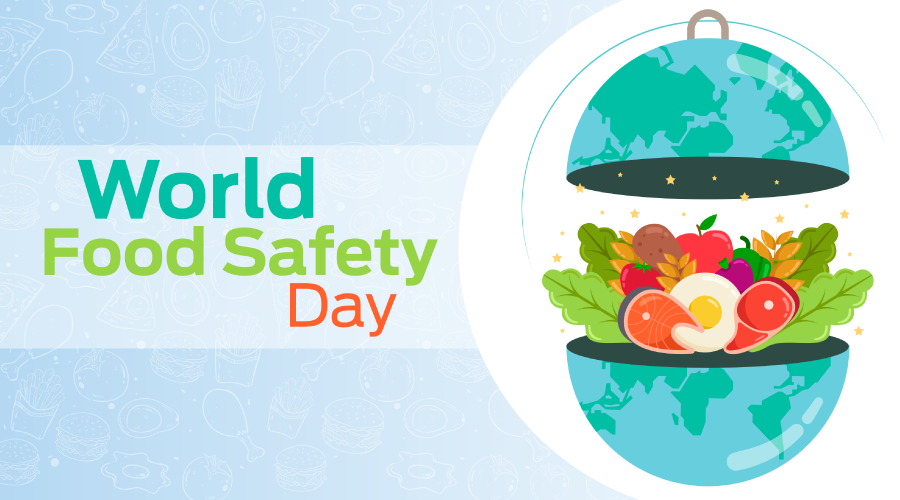

Foodborne diseases are caused by consuming contaminated food or beverages. On World Food Safety Day, we request you all to eat safely and healthily. There are different microbes or pathogens in the ecosystem around you that cause foodborne illnesses. After having read this line, you must be feeling uneasy about the presence of microorganisms around you. Do not worry! These bacteria are generally harmless. They affect only when they are consumed in large quantities.
So, let’s start with the symptoms of foodborne illness.
Symptoms of Foodborne Illness
The differentiation of foodborne illness usually depends on the microbes that contaminate the food and create it. These bacteria feed on the food item and then they release harmful chemicals, thus spoiling the food.
Many foodborne pathogens enter the food tract during recreation or while drinking water. They can also reach the human body from contact with animals as they are contagious.
These foodborne illnesses can easily be detected with these symptoms:
- Diarrhoea or Vomiting – It is one of the most common symptoms of foodborne illness. It typically lasts for 1 to 7 days.
- Abdominal Cramps – Due to constant vomiting or passing of loose stools, you might also get cramps in the stomach.
- Nausea – Till the level of toxins does not subside; you will have a constant uneasy feeling.
- Fever – Since your immunity is compromised, there is a chance that you will have a fever. There is nothing to be scared of. This happens when your antibodies are removing the pathogens from the body.
- Joint and back aches and fatigue – This is an after effect of constant vomiting and diarrhoea which can lead to dehydration. To tackle this, keep on consuming water and other fluids like ORS (oral rehydration solution) at regular intervals.
Usually, you will be able to notice the symptoms within a few hours. In some cases, the symptoms might take up to a few days to show up.
Causes of Foodborne Illness
The stomach flu is a foodborne illness that is caused by a pathogen. It could either be a virus, bacteria, or parasite. They contaminate foods or drinks which are not fresh. The incubation period of these foodborne diseases can range from several hours to 1 week.
We have listed some commonly recognised foodborne infections along with their disease-causing pathogens:
- Campylobacteriosis (Campylobacter)
- Cyclosporiasis (Cyclospora spp.)
- Giardiasis (Giardia)
- Cryptosporidiosis (Cryptosporidium)
- Escherichia coli O157:H7 Infection (E. coli O157)
Non-Processed Foods and Drinks of Animal Origin
There are some raw food items that cannot be consumed as they are. For instance, meat, fish, unpasteurised milk, and other similar products. These have a high chance of being contaminated. This is because many invisible pathogens feed on them. On consuming these items, they discharge toxins onto the surface. If the toxin levels cross a certain limit, they have the capability of causing infection.
Raw Fruits and Vegetables can also be Contaminated
Although plant-based items are not easily contaminated, there is still a chance they could get spoiled. This is because each food has a constituent which can be infected. For example, fruits mostly have natural sugars and carbohydrates, which attract a lot of microorganisms. But how do these pathogens reach here? There are times when fruits and veggies are contaminated with animal waste. This happens when water gets contaminated with manure that is used to fertilise the produce in the field or unclean water is used for washing the produce.
How can You Prevent a Foodborne Illness?
You can prevent foodborne illness by reporting it immediately to a doctor and getting the necessary medication. Apart from these, cleaning the products before using, cooking animal protein properly, or not leaving the food unattended are some of the easy ways to prevent such diseases.
Conclusion
To sum up, food safety is a serious issue and you must not take it lightly. The reason is that even though adults are not always susceptible to the severity of such issues, children and the elderly can suffer significantly. Therefore, on the occasion of World Food Safety Day, take a pledge to do your bit in ensuring that you are consuming and encouraging others to have fresh and safe food.




